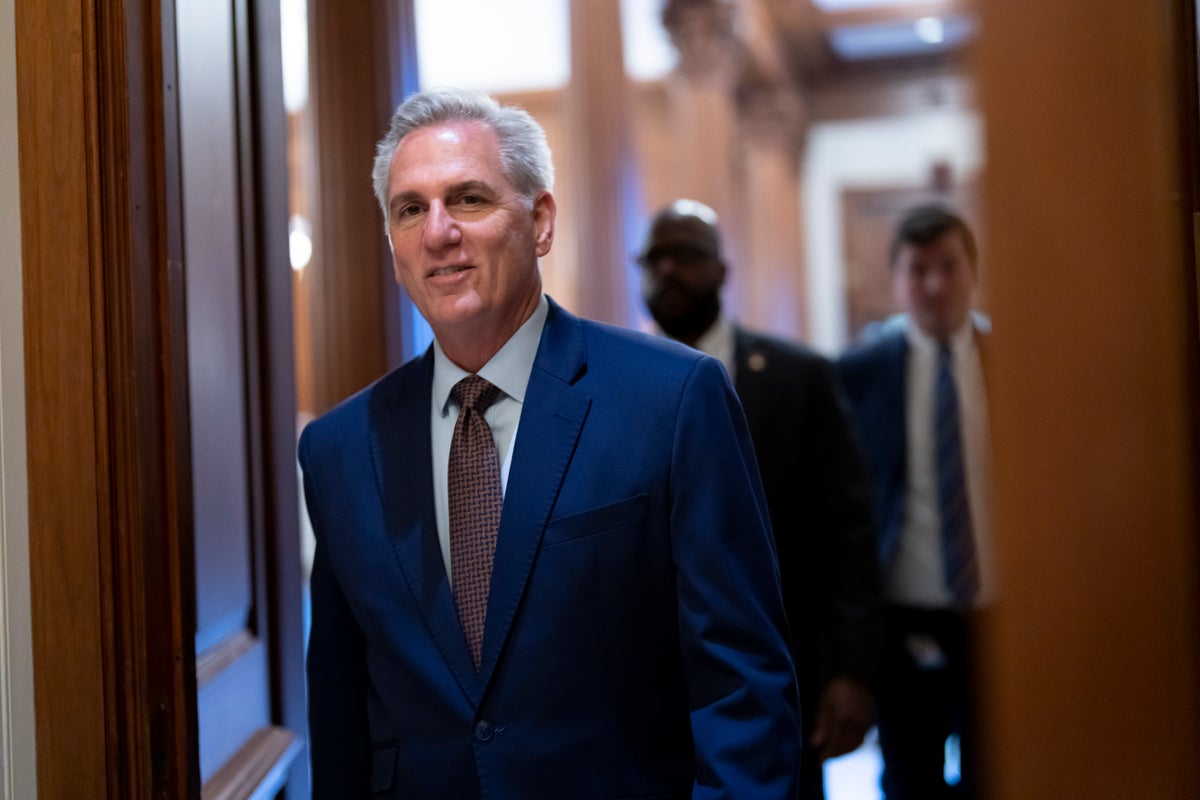
The House speaker vote will take place on 3 January, with Republican leader Kevin McCarthy still lacking enough votes to safely take hold of the gavel.
The election of the House speaker takes place before the chamber has settled on the rules for the next Congress, the 118th. This means that the vote will occur without regular procedures in place.
The House will meet for a Pro Forma session at 10am on Tuesday and adjourn the 117th Congress with the first session of the 118th Congress to convene at 12pm.
The prayer will be offered and the Pledge of Allegiance recited. After that will come a roll call vote, at which point Mr McCarthy, or a challenger, may fail to reach the 218 votes needed to become speaker.
The clerk can, in theory, repeat the roll call voice vote until a candidate gets a majority. But this is unlikely to go on for long. In the past, three or four votes have taken place at most.
Senior fellow at the Government Affairs Institute at Georgetown University, Matthew Glassman, told Politico that “these are not marathon sessions”.
Legislators may vote to change how to elect the speaker, such as accepting the winner of a plurality of votes, which hasn’t happened since the 1850’s, or holding a secret ballot.
Mr Glassman told the outlet that it’s expected for “the clerk to behave in a relatively nonpartisan way”.
If Mr McCarthy fails on the initial ballot, any members-elect can make motions.
Those who oppose Mr McCarthy have been looking into their possible paths, with members of the House Freedom Caucus previously meeting with House Parliamentarian Jason Smith to discuss the process.
The vast majority of House Republicans support Mr McCarthy’s bid for speaker, but about 10 members have forced the leader to scramble for votes as he can only lose four and still make it past the line.
No leader has lost the first ballot to become speaker in a century, The Washington Post noted.
“Two trains are going 100 miles per hour and everyone is wondering: Which one will survive?” a Republican aide told the paper about the feeling among GOP members.







